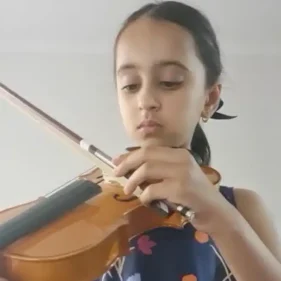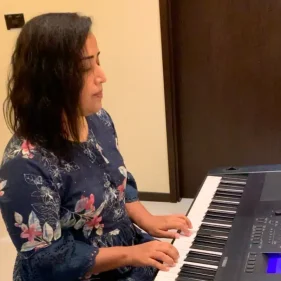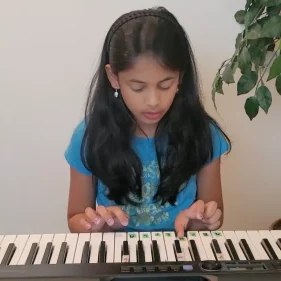Singing is a great art, and every voice is unique. Whether you’re exploring types of singers or trying to understand the differences in types of singing voices, this guide will help you to discover the diversity of vocal ranges and styles. From the highest female voice to the lowest male voice, every types of singing voice has its own charm and significance.
But Would it not be easier to have all the voices in one kind? Also how can one find out which singing voices belongs to?
Worry not! I will take you through this in this text. But before we jump into detail along with some example songs for each types of singing voices. let us look at what makes oneself’s voice so unique and different. Before that lets understand what is singing voices.
What Defines a Singing Voice?
A singer’s voice is classified by factors such as,
Vocal range
The span from the highest pitch voice to the lowest note a singer can produce.
Timbre
The tonal quality that makes a voice unique.
Transition points
Areas where the voice shifts registers, like between chest and head voice. Understanding these features helps categorize singers and align their voices with suitable music styles.
Understanding these helps categorize types of singers and bring out their voices to suitable musical styles.
List Of Singing Voice
1. Soprano
2. Mezzo-Soprano
3. Alto
4. Tenor
5. Baritone
6. Bass
7. Countertenor
8. Sopranista
But how did we land on these different types of singing voices, Let’s dive a little bit into the history.
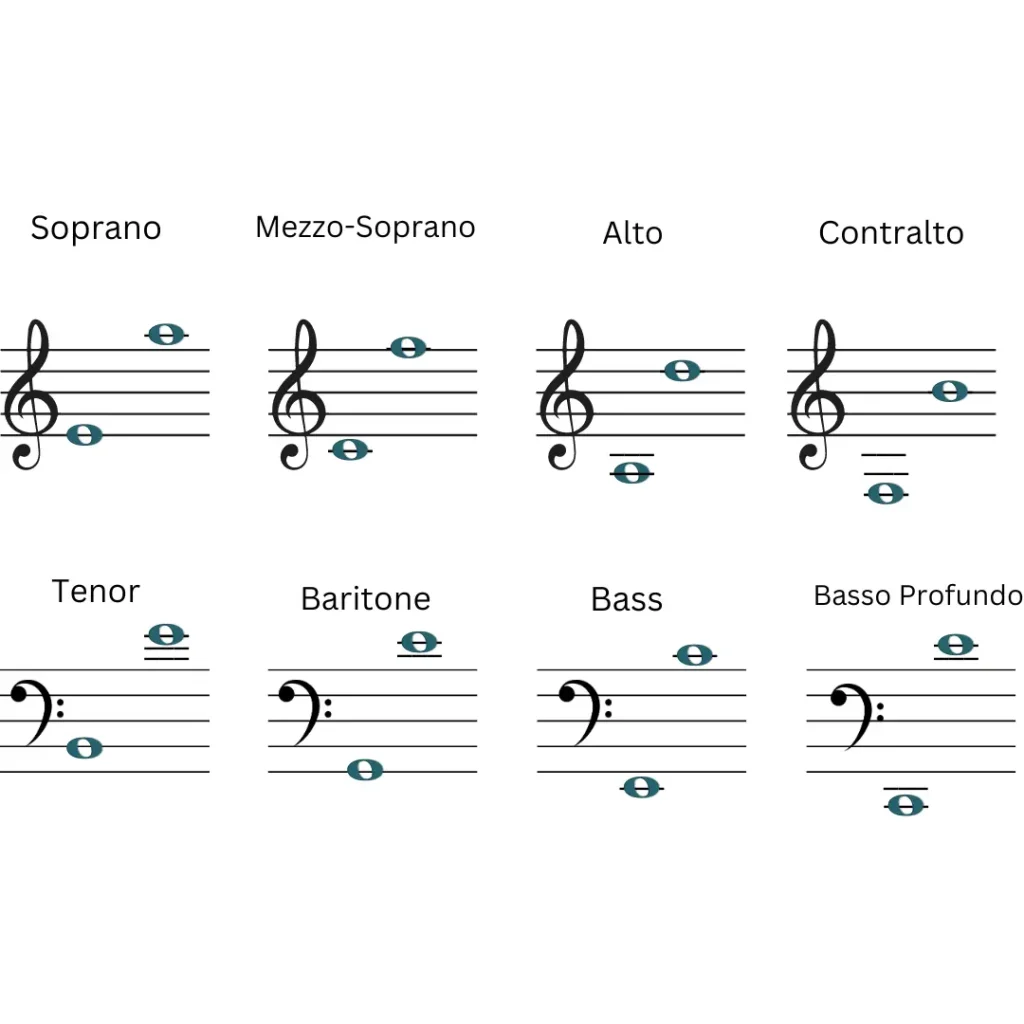
Voice Types And Its History
In human culture, we may even have sung before we spoke, according to some people. Whether that is true or not, singing served a purpose for the earliest time of men. Greek and Roman mythology talks about the tales of the mermaids who sang to sailors to their demise on the rocks.
Eerie but interesting isn’t it? These cultures also start studying music, with Greek philosophy being the first to analyze the science of music. We use their modes of scale to this day.
On the other hand, are the jewish rich in music and poetry since the dawn of time, especially the gospel music.
Many of the song lyrics found in the Old Testament have since been lost to time and are now considered poems. Not to forget about the amusing illustrations about the songs and instruments in the book of Psalms.
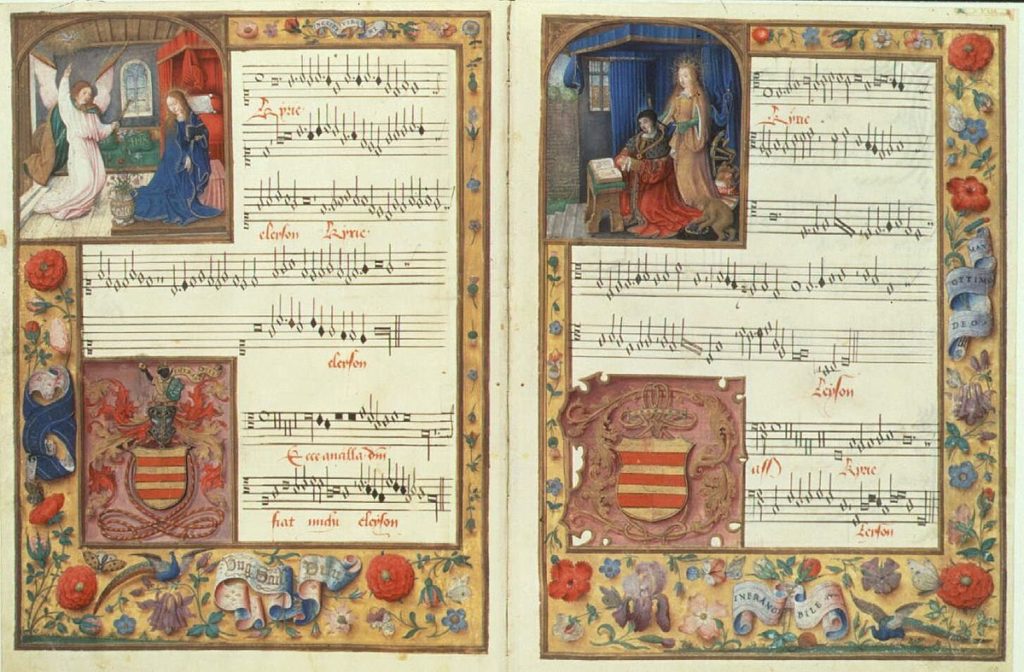
Let me point out that early churches included vocal(choral) and musical elements into their worship.
Although there are not many records on how these chorales worked.
I know!! It’s invigorating!!
As time passed on more secular styles emerged and these choral singing became widely popular and that is how these of singing voices came into the light.
Different Types Of Singing Voice
The types of singing voices are categorized into male and female ranges. Let’s explore each in detail.
Three categories are usually used to categorise women: soprano, mezzo-soprano, and contralto. Generally speaking, men fall into four categories: baritone, bass, tenor, and countertenor.
While men who are classified as countertenors can be classified as contralto, mezzo-soprano, or soprano, some women belong to the tenor or baritone groups. The eighth term, treble, is used to describe the pre-pubescent voice. That singing voice is called sopranist.
Female Singing Voices From Highest To Lowest!
Soprano
When you raise a question “What Type Of Singer Sings A Very High Pitched Voice” Soprano is an answear for that. Soprano in Italian means Sopra-Above. Like its name, the Soprano voice is notable for its splendid high notes. Coloratura (kuhl-er-ah-TOOR-ah), lyric, and dramatic are the three main categories into which sopranos are found in opera. Of all the singing voice the soprano has the highest tessitura (the general range of pitches found in a melody or vocal part) and is highest pitch voice with a wide Vocal range.
Coloratura is the lightest and most flexible sound type, while dramatic is the darkest and most potent. “Lyric” is positioned roughly in the center. Sopranos frequently sing a piece’s melody or main tune, with the other voices providing “back-up” harmonies or support because of the highest female voice. Although this is not always the case.
I am a Soprano singer and I could be put into the first kind- coloratura. Usually a soprano singer’s voice range can be B3-C6. To be honest if pushed Sopranos can hit higher notes.
Mezzo-Soprano
The term “mezzo-sopranos” originates from the Italian prefix “mezzo,” which means “half”, roughly translated as “half-soprano.” Mezzo soprano voice frequently sing at more or less the same pitch as their soprano counterparts. Mezzos are distinguished by their rich tone quality, fiery lower registers, and powerful middle voices. Because of the versatility of their voice, mezzo-soprano voice can often convey a wide range of emotions in their singing. Mezzo soprano’s voice range is generally between A3-A5.
So just like sopranos, mezzo-soprano also have Coloratura, Lyric and Dramatic grouping. The lower register of a coloratura mezzo-soprano is warm, while the high register is light in movement. Coloratura mezzo-sopranos are most at ease singing in the middle of their range rather than the top, despite having delightful high notes. The vocal ability of coloratura mezzo-sopranos and of dramatic mezzo-sopranos are not shared by lyric mezzo-sopranos. I think we can understand why!
Alto
You’d think mezzo-sopranos have deep smashing tones? You gotta check then contraltos and altos out!!
The lowest range of the female voice- Contralto, is distinguished by a rich, deep, and resonant tone. Arguably, contraltos have the lowest female singing voice and are the best at utilizing their low “chest” tones. Although the actual range can vary depending on the singer, women with contralto voices generally have a vocal range that goes from around F3 – F2 . Then what about alto voice? Who are they?
If contralto is like the bass guitar, then alto is like the guitar. These days, the term “alto” is generally used to refer to a low feminine voice and are lower than mezzo. For voices with a strong middle and lower register, chorus music typically calls for an “alto” part; however, Western music does not actually have a distinct alto voice.
Male Singing Voices
Tenor
Simply put, tenor is the singing voice that has the highest vocal range in male. Depending on their unique vocal qualities and training, male voice have different tones and qualities in their voices. Tenors, on the other hand, typically have a bright, clear, and ringing tone that is ideal for singing melodies and leading a melody. The word tenor comes from the Italian word ‘tenere’ which means ‘to hold’. Supposedly, in the early days tenors had the responsibility of holding down a melody. So the highest male voice is the tenor voice.
‘Tenore Buffo‘(ten-or-eh-boo-foh) is the soft-voiced, high range tenor and ‘Heldentenor‘ (hell-dehn-ten-or) is the bold, strong-voiced tenor that sings typical Opera. Typically, C3-B4 is the range of a tenor voice.
Baritone
The baritones happen to be the most prevalent male voices overall, falling between the tenor and bass vocal timbres. Now it is quite strange that this voice wasn’t recognized by the musicians until the 19th century. Baritone is a singers with a powerful midrange and lower notes that are full-bodied, their voices are frequently rich and resonant. Baritone’s vocal range is A2-F4
Just like other voice, baritones can be found in two varieties:
- Lyric- lighter voice frequently heard in classical concert settings and
- Dramatic- darker tone typically heard in lead opera roles.
Point to be noted: Male vocalists frequently have baritone voices, but some female singers – like Usha Uthap – can also have baritone voices.
Bass
Though I have been a soprano singer from my childhood, my favorite singing voice happens to be Bass. I have always admired the resonance of bass singers. Bass is a lowest male voice but they sound so powerful and authoritative. It is these singing voices that are used to depict powerful beings like a God or Monsters or any authoritative roles in a drama.
Compared to other singing voices, a bass singer’s speaking voice might have a richer tone and a lower pitch. They frequently sing the lowest notes in a choir or vocal group, which establishes a solid harmony base. The vocal range if a bass singer is roughly D2- E4. There is a unique subtype of operatic bass voice called basso buffo, which uses the lowest range for comedic effect in Opera singing.
Countertenor
Countertenors have a high vocal range almost equal to the mezzo- sopranos or altos. Countertenors are men who use a specific technique called Falsetto to sing in the high vocal range of women.
This singing voice frequently have a clear, pure tone and a light, sprightly quality to their voice. They have a fantastic ability to smoothly switch between their chest voice and falsetto with a controlled vibrato. The vocal characteristics of countertenors can differ based on their unique training, technique, and natural vocal timbre.
Sopranista
A male vocalist who can reach the soprano range is known as a Sopranista. They usually achieve this by using a particular vocal technique called falsetto. Given that they are male vocalists, their voices might have somewhat distinct timbres or tones.
You must notice in huge choirs up in foreign lands (more likely in protestant churches), there would be young boys who are of pubescent age singing soprano parts. These boys have a sweet and soft, airy- tone which works out well for the chorale music. These voices are categorised under sopranista.
Alright! Let’s talk about classifying your types of singing voice.Everybody’s voice can range from one and a half to more than two octaves. Usually, these types of vocal ranges span roughly two octaves. Many vocalists can perform certain parts in either category and fall between groups.
What Are The 6 Voice Types From Highest To Lowest?
To Summarize, remember that there are 6 Voices from Highest to Lowest; Soprano, Mezzo-Soprano, Alto, Tenor, Baritone and Bass. The Soprano voice is notable for its splendid high notes and wide vocal range. Mezzo soprano voices are quite interesting and sing at more or less the same pitch as their soprano counterparts. The lowest range of the female voice- Alto, is distinguished by a rich, deep, and resonant tone.
Wondering what would be the Male voice types highest to lowest? Well, Tenor is the singing voice that has the highest vocal range in male. Depending on their unique vocal qualities and training, male voices have different tones and qualities in their voices. The baritones happen to be the most prevalent male voices overall, falling between the tenor and bass vocal timbres. Lastly, Bass voices sound so powerful and authoritative and have the lowest vocal range.
Final Thoughts
Understanding the types of singers and their unique ranges is key to improving your craft. The range of human voice used for singing is enormous. Because of this, every voice is unique and posh. Whether you have a high singing voice like a soprano or a low feminine voice like a contralto, embracing your natural strengths is essential
The mort important point to note is that optimising your voice entirely relies on your level of effort ie, practice. Also, the quickest way to maximise your vocal abilities is to take weekly singing lessons with a qualified voice teacher. Book your free demo with us MusicMaster now!!
FAQs
What are the types of singing voices?
Soprano, Mezzo-Soprano, Contralto, Tenor, Baritone, Bass, Countertenor, Sopranist.
How many types of singing voices are there?
There are 8 types of voices.
What are the main characteristics of each voice type?
The main characteristic of each voice type is the voice range of it. Soprano: C4-A5, Mezzo- soprano: A3-F5, Alto: F3-D5, Tenor: B2-G4, Baritone: G2-E4, Bass: E2-C4.
Is there a simple way to identify my own singing voice type?
Yes, you can always identify your voice checking your vocal range.
Are there any famous singers with each voice type?
Absolutely. Soprano: Maria Carey, Mezzo- soprano: Adele, Alto: Miley Cyrus, Tenor: Bruno Mars, Baritone: John Legend, Bass: Jhonny cash.
Are there any benefits to knowing my voice type?
It is incredibly useful to determine your voice type and to choose a repertoire that brings out the best in you to sing.
Related Blog: Exploring Different Male Voices In Music





























